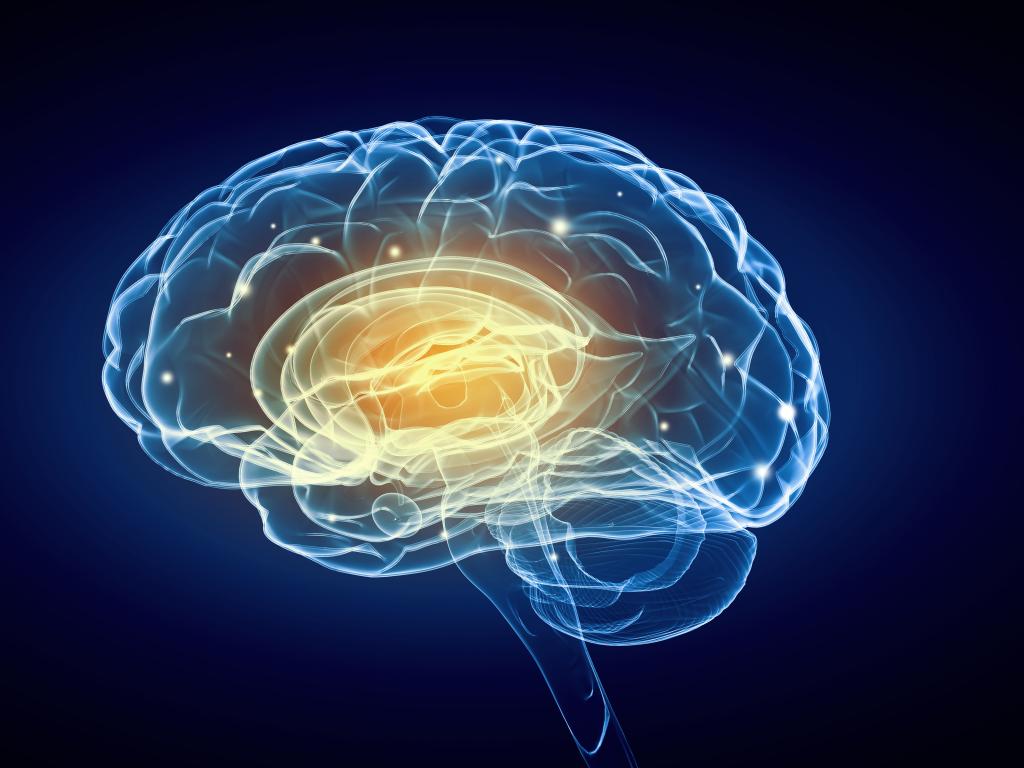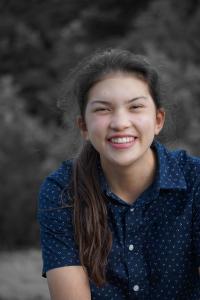
In this Q&A with Institute of Neuroscience doctoral student Kana Suzuki and Emily Sylwestrak, assistant professor of biology and neuroscience, the pair discuss Suzuki’s National Institutes of Health-funded training grant, why research training is important, and how high-quality mentorship affects the quality of science.
Office of the Vice President for Research and Innovation (OVPRI): Let’s start with the research. You have an F31 grant, which requires a research question, but also focuses heavily on training. What is the focus of the project?
Kana Suzuki (KS): The Sylwestrak Lab investigates neural circuits that underlie motivated behavior, and I focus more specifically on reward learning. As we interact with our environment, we learn to associate different stimuli or actions with certain rewards. If there is some discrepancy between what we expected and what actually occurs, we can use this information modify our behavior accordingly. For my project, I am working on monitoring and manipulating particular neural circuits in the brain to understand their role in this reward learning process.

The grant itself opens doors for me to attend workshops or conferences that can help in my research training as well as in networking for my career beyond graduate school as currently I hope to continue in academia as a postdoctoral scholar following graduation.
The training portion of my grant spans across four main goals including conceptual knowledge in neuroscience, technical training, data analysis, and professional development.
OVPRI: That’s a pretty broad range!
Emily Sylwestrak (ES): The best training you can get includes all those domains. It’s common through coursework to get some exposure to content and conceptual information you need to know about a particular discipline. To get the technical training, you can go to workshops or hands-on training.
For smaller bits of technical training, I structure some of our lab meetings as tutorials. They’re usually on something technical, niche, where there is no coursework for it. We might discuss recently published techniques and how to apply them, or best practices for figure-making. Little tips and tricks you get along the way. It’s a way to organize the information about how to operate in academia that isn’t normally part of the coursework.
I’m pretty open with the lab about the mechanics of how academia and my job works. Sometimes the goals are concrete: how to write a grant, how to attend conferences, or how to apply for jobs. Others are a bit more abstract—I try to have the lab see me fail because that’s a big part of research. How do you become resilient to failure across your PhD, try new things, become fearless, if not to experience them firsthand? Part of my job is to show my students how much we learn from mistakes, failures, or unexpected experimental results. We fail, we troubleshoot, and we succeed together.

OVPRI: Kana, can you describe how the mentorship you are receiving is impacting you as a scientist?
KS: As a student coming from a non-neuroscience research area, engaging consistently with Emily helps me work on building a solid foundation in my understanding of the neuroscience field. I will say I agree completely with what Emily said about her own doctoral experience—that the more training I get, the more I realize what I don't know about neuroscience. But I think that's really the fun of it, being more versed in the research happening around me helps me start to contextualize my work into the broader framework of the neuroscience field and gain an appreciation for how much I still have left to learn about how the brain works.
One of the most impactful aspects of having a dedicated mentor has been learning how to do good science. This ranges from project design and experiment setup, data collection and interpreting results, all the way through to figuring out how to best communicate these to the broader scientific community. There are so many nuances in each of these components of research that can help make science more robust and reproducible and these are of course all things I'm still learning. It's incredibly helpful to have a mentor who is dedicated not only to helping me make progress on my project but also to training me to be a strong scientist.
Emily does an incredible job of tailoring her mentorship to my stage in training. I think over the past few years she's maintained this great balance between encouraging my independence as a researcher and providing me with the support I need to succeed in both my research and career goals.
ES: I want to interject here. People often view training relationships as asymmetric and directional: The faculty mentor is mentoring the student. But Kana is very good at mentoring up. She lets me know if something I am doing isn’t working or how we can more effective together. That’s what makes Kana so successful; she’s good at identifying what she needs and building a group that can help her get there. That has really come to light in her excellent mentorship of an undergraduate student in my lab, Tharusha Seagoe. Giving graduate students the ability to mentor undergraduates helps them think about what they need in their own mentoring. It builds a bidirectional mentorship ladder.
OVPRI: What do you think has made Kana most successful in her ability accept and give mentorship so far?
ES: Kana’s superpower is that she is not afraid to ask questions. It took six months, nine months, maybe to catch up with students who have undergraduate degrees neuroscience. This is why I don’t balk at someone who comes from a different discipline, like Kana coming from ecology. Academic disciplines don’t determine the quality of students. Rather, their strength comes from curiosity and eagerness to learn. In fact, coming from a different disciplinary background can be incredibly impactful for the quality and impact of the research because they look at the world differently than you do.
OVPRI: Kana, how are you translating your love of learning into the mentorship you are in turn providing to Tharusha?
KS: One of my main goals more broadly with mentoring undergrad students is to get them excited about research. Courses can sometimes do a disservice to research by framing it as just a step-by-step protocol, which doesn’t give students an opportunity to look under the hood, so to speak. I want help others seek out opportunities to think independently and develop their own research questions and techniques.
I’ve been lucky that Tharusha is such an enthusiastic and curious person. She asks questions and gets involved in projects in lab. I’m proud to say that this past summer she was selected for the First Year Research Experience Award and conducted her own project.
— By Kelley Christensen, Office of the Vice President for Research and Innovation
Editor’s Note: Suzuki’s doctoral studies are in part enabled by her participation in Navigating Educational Trajectories in Neuroscience (NET Neuro), a cohort-based collaborative mentorship and training fellowship designed to build community, leadership capacity, and critical skills in a changing neuroscience workforce. The training model provides students with intensive learning in multiple specific skill sets and integration, enabling them to become complete translational scientists.
